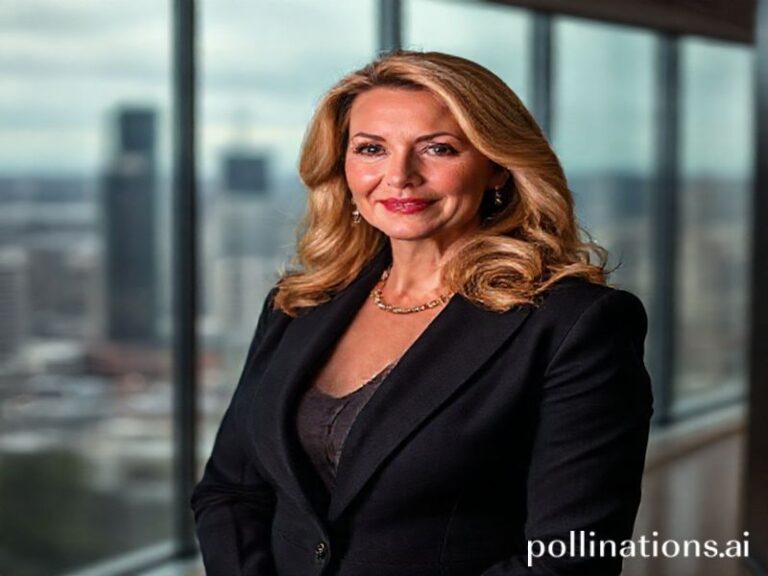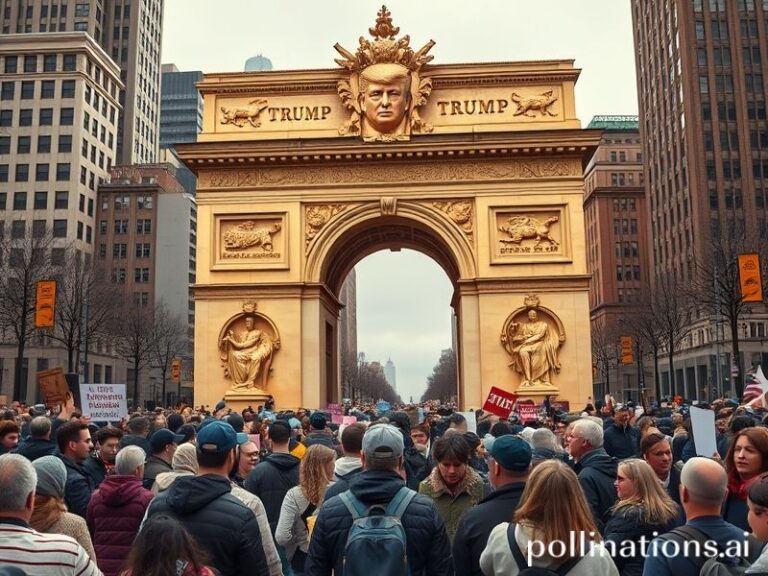Merrill Lynch’s Ghost Still Bull-Runs the World: A Global Séance in Three Acts
Tokyo wakes up, checks the Nikkei, and sees Merrill Lynch’s ghost hovering above the trading floor like an overpriced latte that refuses to evaporate. London’s Canary Wharf echoes with the same apparition. São Paulo, Mumbai, Dubai—everywhere capital goes to feel important—there’s a faint, expensive smell of Merrill Lynch cologne drifting through the vents. The firm itself was officially swallowed by Bank of America in 2008, yet somehow its initials keep flashing on terminals from Sydney to Stockholm, a zombie brand whose tombstone is still accepting flowers.
In polite circles, we call this “global financial integration.” In less polite circles, we call it “haunting.” Merrill Lynch’s pre-crisis balance sheet—roughly the GDP of a mid-tier European country—helped pioneer the idea that risk was just another export commodity, like soybeans or reality television. The mortgage-backed securities it cheerfully bundled in New York basements were shipped abroad with the same carefree optimism used for fireworks or expired pharmaceuticals. When the music stopped, the hangover was remarkably democratic: Icelandic fishermen, Korean pensioners, and Greek civil servants all woke up to find Merrill’s fingerprints on their throbbing temples.
Today, the Merrill Lynch signage survives on marquee wealth-management offices in 40 countries, a reminder that even after the apocalypse someone still needs to polish the brass. Bank of America keeps the name because, frankly, “BofA Wealth” doesn’t evoke the same colonial confidence. It’s the financial equivalent of keeping your ex’s surname because your LinkedIn profile already has 500 endorsements. Meanwhile, the algorithms originally coded in Merrill’s quant dungeons still slosh through global markets, buying milliseconds of advantage the way teenagers hoard TikTok likes—only with slightly worse consequences for the food chain.
From Singapore’s gleaming towers, Merrill’s legacy looks like a cautionary tale wrapped in a Hermès tie. The Monetary Authority quietly requires local banks to stress-test against a “Merrill Event,” which is bureaucrat-speak for “everyone loses their mind at once.” In Frankfurt, regulators sip riesling and wonder aloud whether American risk culture is simply European romanticism with better marketing. They file their reports, then go home to watch Netflix documentaries about the 2008 crash, comforted by the illusion that next time will be different because they now have thicker rulebooks and thinner optimism.
The irony, of course, is that Merrill Lynch’s true export was never subprime mortgages—it was the narrative that finance could be democratized while remaining exclusive. Every emerging-market broker who now sells structured notes to dentists in Jakarta is, in a sense, reciting Merrill’s catechism: returns are personal, risks are someone else’s problem. The global middle class, newly armed with trading apps and inspirational memes, lines up for the same magic beans that once toppled Lehman Brothers. History doesn’t repeat itself, but it does offer a generous referral bonus.
And so Merrill Lynch endures, not as a building or even a legal entity, but as a shared hallucination that liquidity equals morality. Its bull logo still charges across screens from Lagos to Lima, a chrome-plated Minotaur promising shortcuts through the labyrinth—provided you don’t ask who’s paying for the maintenance. Somewhere in the afterlife, Charles Merrill and Edmund Lynch are presumably sipping martinis and arguing over whose turn it is to apologize to Iceland. The barman, naturally, charges interest.
Conclusion: In the grand bazaar of global finance, Merrill Lynch is both antique rug and recurring stain—an enduring reminder that when America sneezes, the world catches a margin call. The next crisis will have a different acronym, but the same perfume. Until then, the bull runs on, horns freshly waxed, chasing yield across borders the way drunks chase last call. And we, the international audience, keep buying tickets—because the show, like the fees, must go on.







